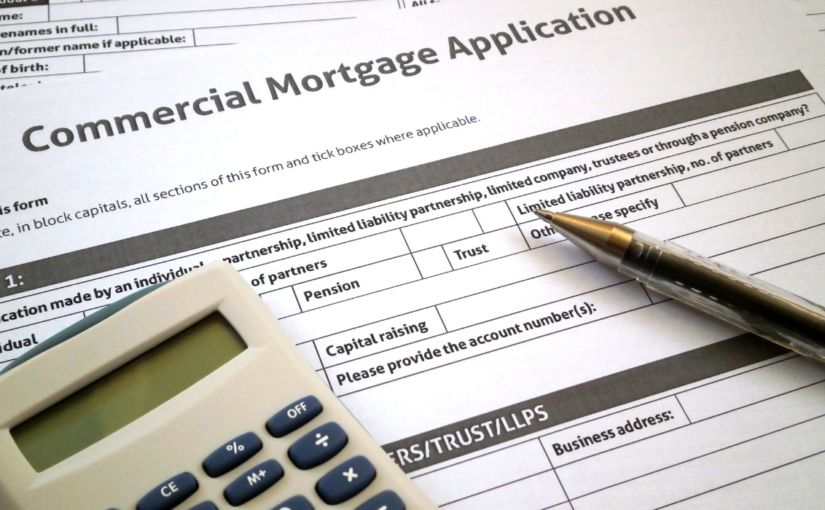back
The Role of Commercial Mortgages in Financing Office Buildings
01-2023

Office building construction and acquisition are significantly financed by commercial mortgages. Businesses and investors typically use these Commercial Mortgages in Financing Office Buildings to buy or refinance commercial real estate, shopping malls, and multi-family homes.
The fact that Commercial Mortgages in Financing Office Buildings offer longer repayment terms than conventional mortgages is one of their main advantages. This is so that the loan can be repaid over a longer period of time since commercial properties are typically bigger and more expensive than residential ones. Additionally, compared to conventional mortgages, commercial mortgages frequently have lower interest rates, making them a more affordable choice for financing office buildings.
Commercial mortgages also frequently offer more flexible terms and conditions than traditional mortgages, which is a bonus. For instance, adjustable interest rates are common in commercial mortgages, which can help keep monthly payments manageable during recessionary periods. Additionally, a wider range of borrowers can access commercial mortgages due to their frequently more lenient credit requirements.
Lenders will take into account a few important factors when approving a commercial mortgage for an office building. These include the borrower’s creditworthiness, the income and expenses of the property, and the general health of the local real estate market. Financial statements, tax returns, and other records that demonstrate the borrower’s creditworthiness are frequently required, as well as comprehensive information about the property, including its earnings and expenses.
When assessing a commercial mortgage application, lenders will also take the local real estate market’s general health into account. This includes elements like the number of vacant offices in the area, the health of the neighborhood economy, and the overall need for office space. Lenders are more likely to approve a commercial mortgage application if the local real estate market is robust because they will see the property as a wise investment.
Lenders typically demand that the office building is in good condition and is properly managed when it comes to the actual property. This includes making sure the structure complies with building codes, is well-maintained, and is bringing in a consistent income. The property must also typically be insured by the lender to guard against potential loss or damage.
A commercial mortgage borrower will typically be required to make consistent payments to the lender once the loan has been approved. These payments, which depend on the loan’s terms, will typically be made monthly and will typically include both interest and principal. Borrowers might also be required to make additional payments for things like property taxes, insurance, and upkeep costs.
The loan-to-value (LTV) ratio is a crucial factor to take into account when applying for a commercial mortgage for an office building. Calculating the LTV ratio involves comparing the loan’s amount to the property’s value. Compared to traditional mortgages, lenders typically require a lower LTV ratio for commercial mortgages because commercial properties are viewed as riskier investments. A higher down payment is required with a lower LTV ratio, which can be a significant barrier for some borrowers.
The type of loan structure is a crucial factor to take into account when applying for a commercial mortgage for an office building. Traditional and non-traditional loan structures are the two main types available for commercial mortgages. Traditional commercial mortgages are frequently fully amortizing loans, meaning that they have a fixed interest rate and are repaid over a predetermined time period. On the other hand, unconventional commercial mortgages might have interest rates that are adjustable, interest-only payments, or balloon payments. Before signing on the dotted line, borrowers should carefully consider the kind of loan structure that is best for their unique situation and understand the terms and conditions of the loan.
Last but not least, it’s critical to comprehend the tax repercussions of obtaining a commercial mortgage for an office building. It’s crucial for borrowers to comprehend the tax repercussions of owning and operating an office building because commercial properties are typically subject to different tax laws than residential ones. This includes comprehending the effects of deductions like mortgage interest and property taxes, as well as the tax ramifications of depreciation and depreciation recapture. To fully grasp the implications of owning an office building and commercial mortgage, borrowers should speak with a tax advisor.
F2H Capital Group is a debt advisory firm specializing in negotiating the best terms for your commercial real estate projects. The company offers a range of financial products and services, including fixed loans, bridge loans, and construction loans across all asset types. Please contact us for any of your financing needs.

